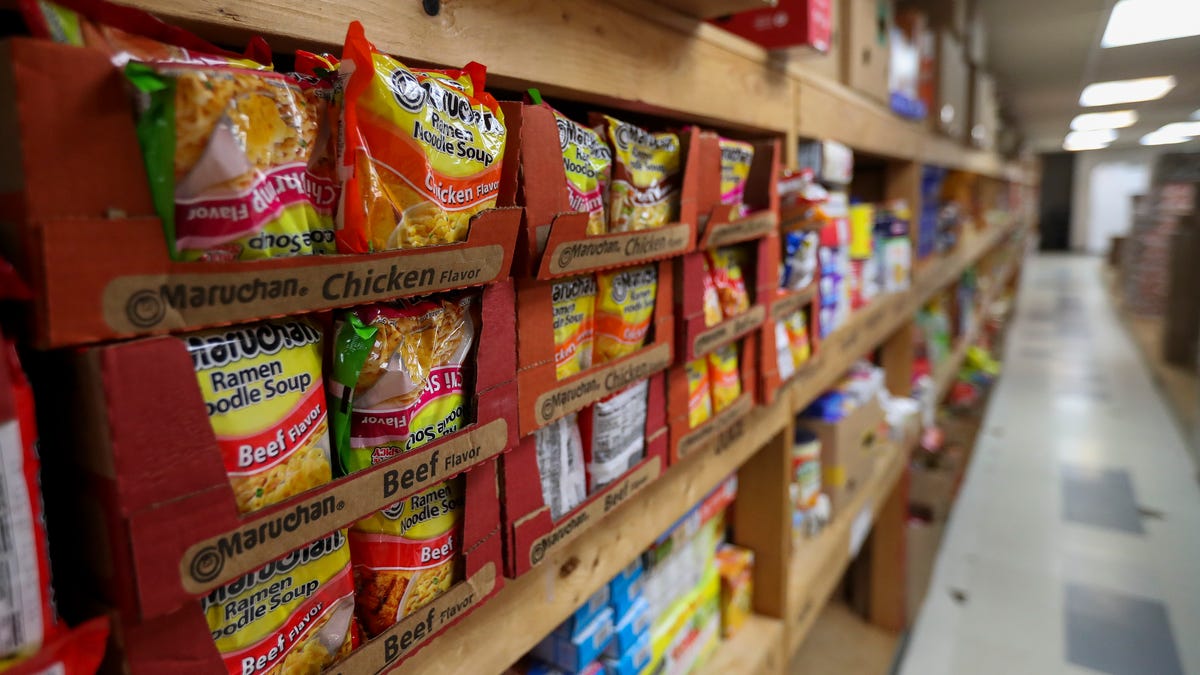Several programs that teach and encourage healthy eating choices and connect low-income residents to resources in the Green Bay area are in jeopardy.
Funding for Supplemental Nutrition Assistance Program Education, referred to SNAP-Ed, was eliminated in the Trump administration’s “Big Beautiful Bill.” Current funding ends Sept. 30.
The SNAP-Ed nutrition program works with people who receive SNAP benefits to help them make healthy food choices. According to the Wisconsin Department of Health Services, every $1 spent on nutrition education saves $10 in health care costs in the long run.
Most of SNAP-Ed funding goes toward programs through the University of Wisconsin-Madison Extension. UW Extension runs FoodWIse, a nutrition education program offered in almost all the state’s counties.
While FoodWIse programs will continue to run as normal until the end of September, the UW Extension announced July 25 that it has started winding down operations and sent out layoff notices to 92 SNAP-Ed educators.
Those included all five employees in Brown County’s FoodWIse program, said Liliana Ramirez, the county’s FoodWIse program administrator.
UW-Extension is looking for alternative sources of funding and ways to continue some nutritional education programming through its Health and Well-Being Institute.
What programs does FoodWIse offer?
FoodWIse in Brown County works with 35 community organizations to “meet people where they work, live, pray, and play” to offer services that “make sense for them at that time of their life,” Ramirez said.
Educators work closely with schools, churches, food pantries and area farmers markets. In 2024, they worked with 1,606 people in different events and programs. Several programs in schools and food pantries were offered in both English and Spanish to teach them how to eat healthy fruits and vegetables.
After providing ways to infuse water with fruits and herbs, one woman told Ramirez she was drinking more water everyday. Several teachers have also told her that they notice students bringing healthier snacks from home after attending a FoodWIse program.
“We are engaging them and rippling out in the community,” Ramirez said.
A FoodWIse outlet provides tours at at area farmers markets to show how people with FoodShare benefits can make the most of their benefits.
Educators also work with Oneida Food Distribution to provide a monthly program to show what you can make with the ingredients available on hand.
According to the UW Extension, 79% of people who participate in FoodWIse are children. The program helps prevent chronic disease by teaching kids how to eat at school. About 52% of kids say they eat more fruits after participating in a program and 36% say they drink fewer sugary beverages.
Other SNAP-Ed programs in Green Bay will lose funding too
While most SNAP-Ed money goes toward UW Extension programs, the funds also support programming through other organizations.
Selena Darrow, the founder and executive director of Rooted In Inc., offers cooking demos for residents in the community through Feeding America Eastern Wisconsin with SNAP-Ed dollars.
“The program is designed specifically for low-income families to give them the tools to improve their nutrition and their behaviors,” Darrow said.
She did a demo at the Salvation Army Kroc Center’s Senior Farmers Market Vouchers Kickoff Event in June and at each of the Brown County farmers markets that participate in the SNAP voucher program, including the markets downtown, on Military Avenue, in De Pere and Oneida.
She offered a seasonal recipe of the month to find creative ways for families to explore affordable recipes with produce they can use SNAP benefits on. Those included a strawberry rhubarb salsa, corn esquites, and ideas for meals with Swiss chard and bok choy.
“We’re trying to build demos to inspire people to use ingredients they wouldn’t necessarily choose to use without being exposed to them,” Darrow said.
Other SNAP-Ed programs through Feeding America Eastern Wisconsin ran across six different counties to teach residents how to start their own vegetable gardens or increase student satisfaction with school meals, said Matt Stienstra, director of advocacy and community engagement of Feeding America Eastern Wisconsin. One resident led a program to rescue and harvest spawning salmon, process them and give them to families in need.
Stienstra hopes some of the future SNAP-Ed will be salvaged in the upcoming federal Farm Bill. SNAP is usually addressed in the nutrition policy section of the farm bill, which is in effect until the end of September.
Contact Benita Mathew at bmathew@gannett.com.

